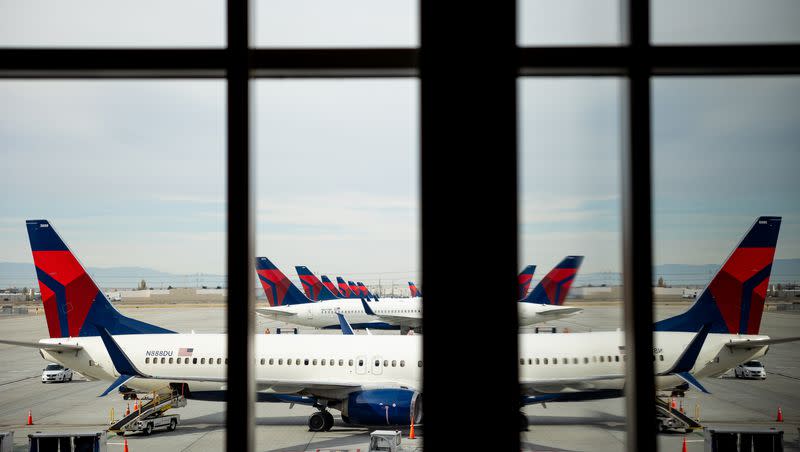U.S. State Department issues global travel warning

In a rare move, the U.S. State Department Thursday issued a worldwide caution, advising all U.S. citizens around the world to “exercise increased caution” due to the “potential for terrorist attacks, demonstrations or violent actions against U.S. citizens.”
It recommends that U.S. citizens stay alert in areas frequented by tourists, enroll in the Smart Traveler Enrollment Program that will allow them to receive information and alerts, and follow the State Department on Facebook and X.
The alert is in response to the Israel-Hamas war and the increase in protests around the world, many of which are targeting U.S. embassies.
The last time the State Department issued a global alert was in August 2022 after al-Qaeda leader Ayman al-Zawahiri was killed.
Related
Other cautions
In the last week, the State Department has also issued a Level 4 “Do Not Travel” caution to Gaza and Lebanon. On Oct. 17, the State Department authorized the “voluntary, temporary departure of family members of U.S. government personnel and some non-emergency personnel from U.S. Embassy Beirut due to the unpredictable security situation in Lebanon.”
In Turkey, the U.S. Consulate will remain closed until further notice. The advisory reads, “Large demonstrations related to events in Israel and Gaza are expected throughout Turkey for the next several weeks. Any gathering, even those intended to be peaceful, could escalate and turn violent. U.S. government personnel in Turkey have been instructed to minimize movements and avoid travel to the Consulate Adana consular district.” U.S. citizens in Lebanon are urged to make plans to depart as soon as possible.
In Egypt, the State Department cautions that the situation in Israel and Gaza continues to be volatile and raises the potential for unrest in the region. “Related demonstrations, potentially including anti-U.S. sentiment, may occur in Cairo or elsewhere in Egypt. U.S. citizens are urged to remain alert to local security developments, avoid demonstrations and be vigilant at all times regarding their personal security.”
In Iraq, the State Department is monitoring calls for demonstrations throughout the country, including a large demonstration with potential for anti-U.S. sentiment in Baghdad on Oct. 20. U.S. citizens are warned to “be aware of the potential for protests related to the ongoing events in Gaza to spread rapidly throughout Iraq without prior notice, often interrupting traffic, transportation and other services, and sometimes turning violent. Monitor local media. Avoid protests and large gatherings.” The State Department’s travel advisory for Iraq remains at a Level 4: Do Not Travel.
In Oman, the State Department is monitoring planned protests from Oct. 18 through Oct. 20. U.S. citizens are advised to keep a low profile, remain alert, have a personal security plan and a PACE communication plan: Primary, Alternate, Contingency and Emergency.
In Jordan, the U.S. Embassy is advising U.S. citizens to expect a heavy police presence around the embassy and is telling citizens to avoid large crowds and any protests.
President Joe Biden flew to Israel this week in a display of support for Israel. Speaking in Tel Aviv after meeting with Prime Minister Benjamin Netanyahu, Biden said, “I come to Israel with a single message: You are not alone. As long as the United States stands, and we will stand forever, we’ll not ever let you be alone.”
The visit was the first of any U.S. president to Israel during a time of war.
Holly Richardson is the editor of Utah Policy.

